Juice of fantasy: the imaginative life of the struggling child
Temenos, Australian Jungian and Cultural Review, Issue 3, Autumn, 1996
i
The unconscious, says Jung, 'like the sea itself ... yields an endless and self-replenishing abundance of living creatures, a wealth beyond our fathoming." The mind, adds Hillman, 'never stops oozing and spurting the sap and juice of fantasy’.
How do those of us who work with children respond to this oozing and spurting, this endless and self-replenishing abundance? Are the stories, dreams and anecdotes that I hear every day in my work with struggling children merely compensation for the difficulties they are experiencing? Or are they more than that? Am I indeed being entrusted with a precious and potent glimpse of a wealth which, while possibly beyond my fathoming, is worth serious attention?
Jung himself had no doubts about the importance of his childhood memories, dreams and reflections. He wrote, for example, about his terrifying phallus dream as follows:
Through this childhood dream I was initiated into the secrets of the earth. What happened then was a kind of burial in the earth, and many years were to pass before I came out again. Today I know that it happened in order to bring the greatest possible amount of light into the darkness. It was an initiation into the realm of darkness. My intellectual life had its unconscious beginnings at that time.'
While our society is putting enormous energy into curing or managing the learning and behaviour of the children who are struggling, little attention is being paid to the inner lives of these young people, and in the meantime the number of worried parents ringing me continues to grow, the strain on the teachers in schools gets worse, the amount of graffiti on the city's walls and signs proliferates. 'Until the soul has got what it wants,' writes James Hillman, 'it must fall ill again.’ We seem to be missing the point, misreading the signs, misinterpreting the nature of the oozing and spurting. What is it that the soul of these children wants?
It wants to be heard. It doesn't want to be fixed, remediated, drugged, disciplined, controlled or subdued. It wants to be listened to. It wants the focus to shift, from the headlong rush of our modern society's need to do more in less time to the less frenetic listening to the meandering and ambiguous tales of the soul.
ii
Nicholas, aged 13, came to see me around the middle of 1993. His mother had told me that he was avoiding work and becoming a behaviour problem in the classroom. Nor did he particularly want to come and see me, though he'd agreed with his mother to give just one session a go.
Soon after he arrived, and after we'd chatted for a bit about our mutual love of sport and about school, I asked him to tell me a story. This is what he told me:
There was once a little log, and there was a king who protected the log. In the log there lived these little ants who had only ever been found in that log. The log was in a jungle. The king and his followers protected the log from invaders.
The reason why the king had to protect the log was because one day some giant animals came and started to eat the ants.
They kept on eating until there were only five ants left. The ants were now deep down in their burrows which were being gradually pulled open by the giant animals. The king ... and his followers ran over and attacked the animals who fled into the jungle. Then the king built the village which he now lives in today.
There is still a danger because there is always a risk that other animals could come for these ants, and the king is always on the lookout for these animals to make sure they won't kill the ants.
We didn't talk about his story, except for me to say how much I had enjoyed it. His mother described the effect of this first session on her son:
I couldn't believe how positive he was after just one meeting - his body language was so different - he came out feeling so happy and good about himself and so confident (no longer hiding under his cap and avoiding eye contact). It was as if he had grown a foot taller.
Why the change? What had we done during that hour which had had such a marked and obvious impact?
Through telling the story, Nicholas had opened up a neglected part of himself. In his eight years of formal schooling, a part of him had gone underground. I almost wrote to wither, but, as Jung reminds us, it's important to listen to what the dream or the fantasy is actually saying. The symbol here is the ants, and although there are very few of them left in the log, there is no suggestion that they are anything other than healthy (if rather nervous) ants, and ants are strong. What's more, they've got a king to look after them. Given the right conditions - a jungle free of the threat of the large animals - then the ants will resume their industrious ways.
It was clear from the way Nicholas talked about school that he had no conscious understanding of this hidden strength, this neglected part of himself. In his conscious mind, the problem was himself, his laziness, his lack of ability. I ought to be doing more homework,' he told me during our first session, 'but I don't feel motivated. When it's time to do my homework, I would rather shoot baskets, watch TV or go into the kitchen and get something to eat.
Had Nicholas not been able to tell this story, the part of him yearning for a safe environment where it might breathe some open air and perhaps flex its muscles - I take my cue from his story of the ants in their burrow - would remain deeply buried underground, and the frustration of continued blocked energy would have continued to come out, as it did at the time in Nicholas's life, in temper tantrums, in wild complaints about being picked on, in desperate and tearful pleas with his parents that he change schools.
Nicholas started to come to see me weekly for an hour, and we talked about whatever he wanted to talk about. I told him a few stories that seemed connected to the way he was experiencing the world, he wrote little snippets about things that interested him and we began to play a computer game where he was the leader of an ancient civilisation. There were already signs at home and at school that something had shifted inside him. He was less tearful and volatile, happier at school. Two months after our first session, he told me a second story:
There was this King Lion who had been told many complaints from the animals about these two hunters who were trying to track them down and kill them. One of the hunters had a gun, and the other one had a motor bike. The animals had a big meeting, with the lion chairing it. The meeting was about how to stop the hunters from capturing and killing them. They decided that instead of them having to leave, that they would make the hunters leave and they set about going ahead with the plan.
They used the stronger animals, like the rhinos and horses, to attack the hunters by means of a stampede. ...The only problem they had to get around was the gun. They decided to use the smaller faster animals to take it while the men were asleep. This worked, and the next day they attacked the hunters.
The attack was successful, with little injury to the animals.
The hunters left a few hours after the attack had started. What the hunters had left behind, the animals distributed amongst themselves as tokens of their success. And they built a statue as a memorial to the Lion's achievements.
After Nicholas left that day, I got out his ant story again and put the two side by side. The characters of his fantasy world were now experiencing life very differently. The king of the first story was now the King Lion'. The focus had shifted from five tiny ants burrowed deep under the ground to the King Lion with both strong and swift and cunning animals as his allies. In the first story, the king needed to find a new home for his followers, whereas in the second they decide that instead of them having to leave, that they would make the hunters leave. The first story was tentative, unsure about how to deal with the threat, fraught with a sense of the fragility of the final settlement. There is still a danger because there is always a risk that the other animals could come for these ants, and the king is always on the lookout... The second story, on the other hand, ends in a mood of confidence and triumphant celebration: "What the hunters had left behind, the animals distributed amongst themselves as tokens of their success. And they built a statue as a memorial to the Lion's achievements.'
His stories had been heard, a neglected part had been noticed, and this reawakened part had come alive, releasing its energy into Nicholas's outer world experiences.
iii
There is so much in our culture that is about rush and striving. Getting the well paid job. Having the latest gear. Getting good marks at school. Not lagging behind.
Last week, one of my adolescent students - someone about whom there is a great deal of concern because she spends more time talking with her friends than finishing her geography assignment - told me the following dream:
I was snowboarding right along the side of a cliff, and there were all these green pine trees, and I just fell off the diff and down through all the pine trees and died.
She had several dreams over that week which involved images of acceleration and promotion: a pair of running spikes, some black sneakers, selection for a higher netball team. In this dream, she was doing what all those around her were urging. To get a move on. To pick up the pace. But it ended disastrously. Snowboarding took her over the cliff.
I have another student, an eleven-year-old boy, who is restless and evasive when we talk about school and his chronic spelling difficulties. But he is alive and connected when he tells me about the forest near his house or the fantasy figures who populate his imagination. Recently he told me a dream - the only one he has remembered this year - which describes the path taken by many of the children I see.
We were walking down a crowded backstreet, me and my friends, and we were lost. The backstreet was really dirty and full of rats, and we found a big Seal Park which had lots of water, and they had a few jobs left so we enrolled.
Whereas the girl in the snowboarding dream had clapped on the pace, this boy had found a backstreet, a place full of rats and rubbish. Her haste had ended disastrously; his disoriented meanderings had taken him to a Seal Park where, he told me later, the marine life was abundant and where there was a job for him, a place in the world. This is the story of all the great fairytales and myths - through darkness there is light, through difficulty there is enlightenment. And this, I think, is what these struggling children's experiences are telling us, that we have to find another way, a less direct and darker way through the back streets of the soul.
Why is it that so many young people are having difficulties with school? Why is the Attention Deficit Disorder debate raging? Why are so many young people being referred to professionals because they are tired, listless, unsettled, without an apparent focus? Traditionally, we have thought reductively about these questions, and have pointed to aspects of both nature and nurture. But what happens if, instead of asking 'What has caused these difficulties?', we look at the question teleologically? What happens if we ask ourselves, 'For what purpose is there all of this struggling?
I cannot help thinking that there is a soul aspect to this phenomenon, that some kind of collective soul is calling out for attention, is challenging us to ask some fundamental questions about where we are going, not only in our attitudes towards learning and schooling, but also with our world. The 'fast track' solutions are not working - the drugs, the special remedial programs, the discipline strategies. What does seem to work is a kind of slowing down and going deeper, a listening for the yearning that is behind the catalogue of symptoms.
Could it be that the careful attention that these young people are needing is an aspect of a more general need to re-examine the pace and directions to which our modern society is committed? Is the world, now that it is faced with increasing environmental pressure as a result of our assumptions about progress and change, requiring of us, its guardians, a different way of thinking? Might we not be better off seeing these struggling youngsters as in some elusive way holding keys to a new way of thinking about what is important, about where we are going and how we are getting there?
Here is a third dream, this one told to me by a twelve-year-old girl experiencing a great deal of pain in her life, slipping behind in her schoolwork and in the midst of a difficult family break-up:
I am a young man, very strong, living in ancient times. I have a bare top, a loincloth and sandals with leather thongs wrapped around my legs. I have a little beard. I am standing on this big bridge, looking down at all this jungle or forest, and it is raining. Thesky is really cloudy and I am getting drenched.
Then I look ahead and the clouds start to lift and I see a big grey rockface that is sacred with all these symbols drawn on it from my tribe. One of them is mine, two circles somehow together. But then it disappears, someone has taken my symbol and I feel very angry about this and want to do something about it. L feel angry like the Aborigines must have felt when the whites came and took the land from them.
The pain and outrage in this dream is in part personal rather than collective, the outcome of particular events in her life over the past year. But I see other members of her tribe every day, the children marginalised by our assumptions about learning and success. These are the children whose self-respect - that most sacred of possessions - has been snatched away just as the symbol was stolen from the rockface. There is a challenge in all of this for us to find the time to step back from our headlong rush into the future, and to listen. To pay attention to what these struggling people's symptoms are saying.
iv
During the last school holidays, ten teenagers and I immersed ourselves for three days in the story of the Odyssey. Viewed from a certain perspective, most of these young people were struggling. One girl hadn't learnt to read till she was nine. Others were in trouble at school or at home. Most had heard the term 'underachiever' or 'disruptive' applied to them at one time or another.
‘Two things are certain to happen in the next three days,’ I told them as we met on the first morning, 'and perhaps a third. Firstly, you'll be hearing me tell the story of Odysseus's journey from Troy to his home in Ithaca, and of his many adventures along the way. Secondly, we'll dramatise and draw and talk about some of these episodes. We'll try to get inside the skins of some of the characters in this story, and we'll relate some of what we experience to events in our own lives. And perhaps a third something, mysterious and as yet unknown, will emerge during this workshop, something which perhaps will grow as we get to know each other and the story, something that will demand some of our time and attention.'
Then I began to tell the story, episode by episode. We began on the island of Calypso, the sea nymph. She had been living with Odysseus for the past seven years, tending his wounds, singing songs to his sorrowing soul, loving him with all her heart, saddened to see him staring ever more desperately out to sea in the direction of his own home which he hadn't seen for nearly twenty years. We took a look at the state of affairs back in Ithaca, where the kingdom was facing ruin at the hands of the greedy suitors who were eating and drinking from the royal table and diminishing the family wealth as they waited for Odysseus's wife to marry one of them. We heard the debate up on Olympus as Athene pleaded for some change in fortune for the hapless Odysseus so that he might return home and right the wrongs being done there.
Things were indeed crook, and this was the starting point of the first of our many increasingly intimate discussions, for there were crook things that these young people had experienced as well. One girl told us of years of humiliation at school as she struggled with her learning difficulties and with the attitudes of the other children. Another talked about a painful and confusing marriage breakup, a third about an unhappy year away from home. Tensions began to surface in the group, between those who wanted to use the space to talk from the heart and those whose pain needed to be acted out less consciously. The struggle to remain inclusive, not to ostracise or ridicule, was felt by us all in different ways, and was echoed for us in the story as Odysseus struggled to Keep his crews intact, to bring together the different needs and impulses of his men. It was echoed too in the ancient belief that the person sitting next to you could be one of the gods in hiding.
We acted out the sacking of the city of Ismaris and the battle with the Cyclops. We watched Odysseus's jealous crew disobey orders and release the contrary winds from the Aeolus's bag. Why do we sometimes disobey orders, we asked ourselves. Where do impulses and curiosity lead us? How do we feel about our mistakes and our adventures? We heard about the destruction of the ships by the giants, about the enmity of the god Poseidon, and of the accepting ministrations of the Phaecians and the beautiful Princess Nausicaa, a girl (like the girls and boys in the workshops) conscious of her pubescent transformations and the psychic preparations she was making for adulthood.
The children were becoming increasingly immersed in the story, comfortable with each other and excited by the emergence of 'the third thing. They started to talk about their dreams, and their dreams contained motifs that we recognised from the story. 'I dreamt I was trying to get home at night from the city, but the buses didn't come and the taxis wouldn't take me in the right direction.' 'I was in this large stainless steel kitchen and there were black and white squares all over the floor, and I had to stay on the white squares but the door I wanted to go through was surrounded by black.' I was in a room looking out a window at a distant mountain, and it was covered in snow which I love, and I wanted to go there but the science teacher wouldn't let me.' I was standing on this cliff and all of a sudden it started to crumble and I found myself falling.'
During the last day and a half, this third element began to take the group over. I would tell an episode of the story - culminating in the bloody revenge taken by Odysseus and his son on the suitors, all of whom are slaughtered in the hall of the palace in a scene that would carry an R rating were it portrayed in any modern film, and with uncomfortable parallels with some of the news from Bosnia - and in between episodes the kids would go off with my 16-year-old daughter, and prepare a performance for the third night, for their parents and for me, in which they would weave various elements of the story and their own reactions and dreams.
On that third night, the parents and I were ushered into the room in which we'd done our workshop, none of us adults knowing what was about to take place. The lights were turned off, and then from out of the darkness a play began, a modern day adaptation of various elements of the Cyclops scene. A monster was at large, devouring people throughout the city, sucking people into its orbit. At one moment it was a shape behind a curtain. The next it was in many parts, writhing towards and then enveloping its next victim. The people of the city managed to capture it, and it was thrown into acid but at the last moment it reached out and grasped the last remaining person. A scream was heard, and then nothing. Darkness.
Then we were taken outside, and divided into three groups for three unknown adventures. The group I was in was given a map which took us, through the moonlit night, around a building and to the edge of an oval. In the distance, we could see amongst some trees an open tin shed in which a table had been set up. On the table were dozens of different sized candles, their lights reflecting off the tin walls and back across the oval, like the lights of a far-off village, beckoning us to cross the oval and to investigate. So many times Odysseus landed on an island and either he or his men were overcome by curiosity. The Cyclops's cave. Circe's pig pens. The fruit of forgetfulness in the land of the lotus eaters. We walked slowly towards the flickering candles, and then, as we reached the shed, we heard soft music and saw two silhouetted figures dressed in black dancing slowly, mysteriously, for our entertainment. Then we were guided to another site, this time to hear the kids speaking into the night fragments of their many dreams and written reactions to the workshop.
‘I’m on a long journey. ‘I feel confused.’ ‘I’m on the edge of a cliff.’ ‘I feel safe on the roof of my house.’ ‘Everyone goes through bad times.' I love it how everyone can be open to the group in this workshop. The whole workshop is so unorganised, nothing seems set, I love it.’ And more. Then the evening finished, and we all went home.
v
Over his door at Kusnacht, Jung had engraved: "Invited or not, the gods will be present." That's how it had felt on the workshop. The gods had been present, though none of us knew at the beginning in what form they would come or how they would take possession of proceedings.
These same gods, and others more dark and unsettling. are present at many times in these young people's lives, the people who came to the workshop and the people who struggle at school with their differences, their inwardness, their demons and their terrors. The presence of these gods is always disturbing, and our instinct is often to shut them out, to cure our children of their symptoms as efficiently as we can, so they can take their part as 'normally functioning members of our community. The same as the others. Each with an equal chance of success.
But it's an approach that the young are resisting, even those who consciously wish that they were 'normal' and that the difficulties that plague their lives would just go away. They won't go away. They're clamouring for attention.
The oozings and spurtings that mess up our conventional approaches to learning and growing and being with children won't dry up, but instead will continue to lead them - and us, if we choose to follow - down the backstreets with the rats and the rubbish to a wealth beyond our fathoming.
***
I have been given permission to use the dreams, stories and photos included.
REFERENCES
C.G. Jung The Psychology of the Transference Ark Paperback edition, London 1983 p14
James Hillman A Blue Fire: The Essential James Hillman introduced and edited by Thomas Moore, Routledge, London 1990 p 117
C G Jung Memories, Dreams, Reflections Fontana Paperbacks, London, 1983. p 30
Hillman (1990) p. 78


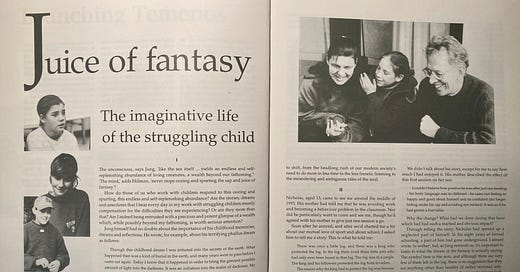



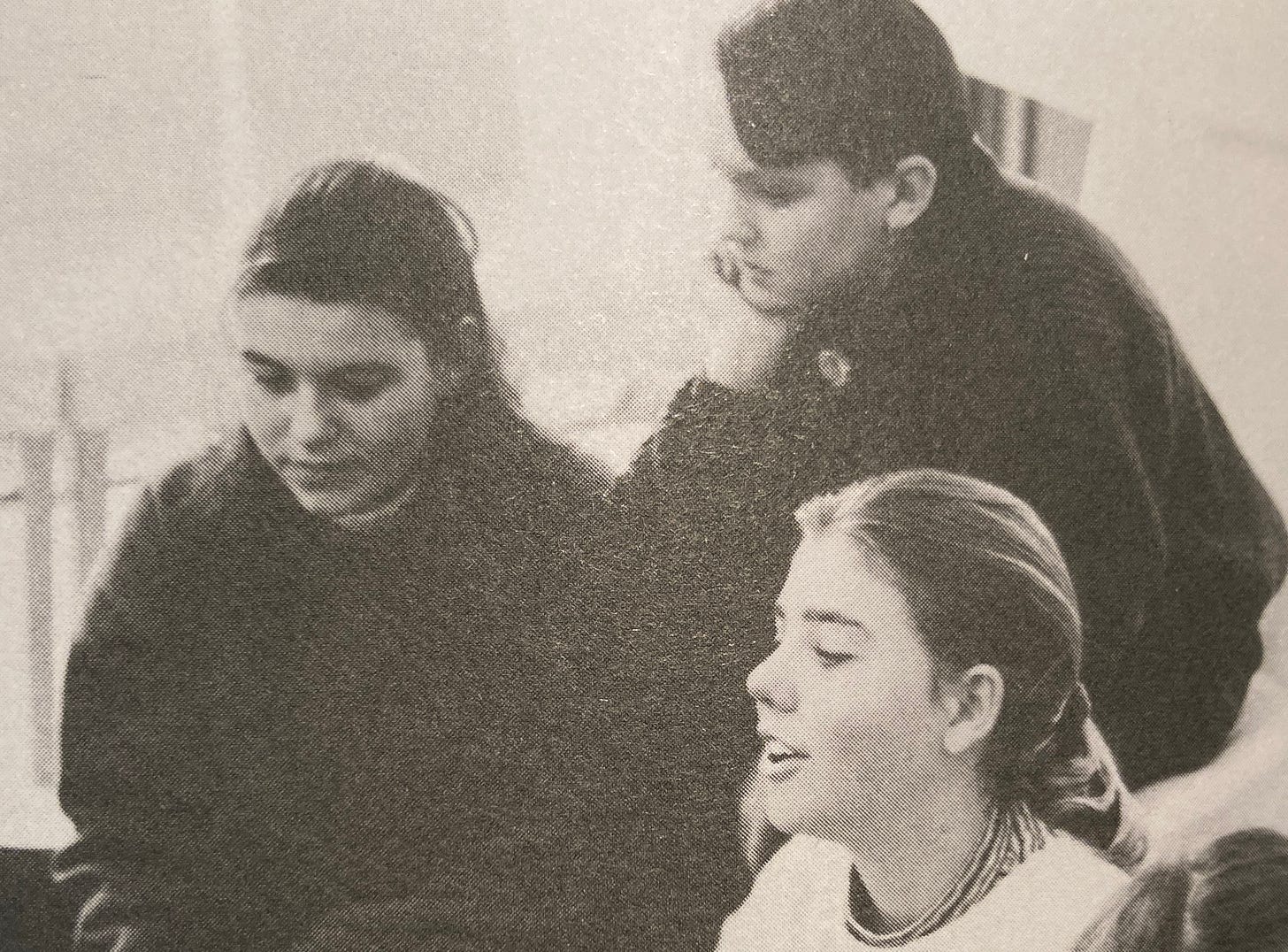
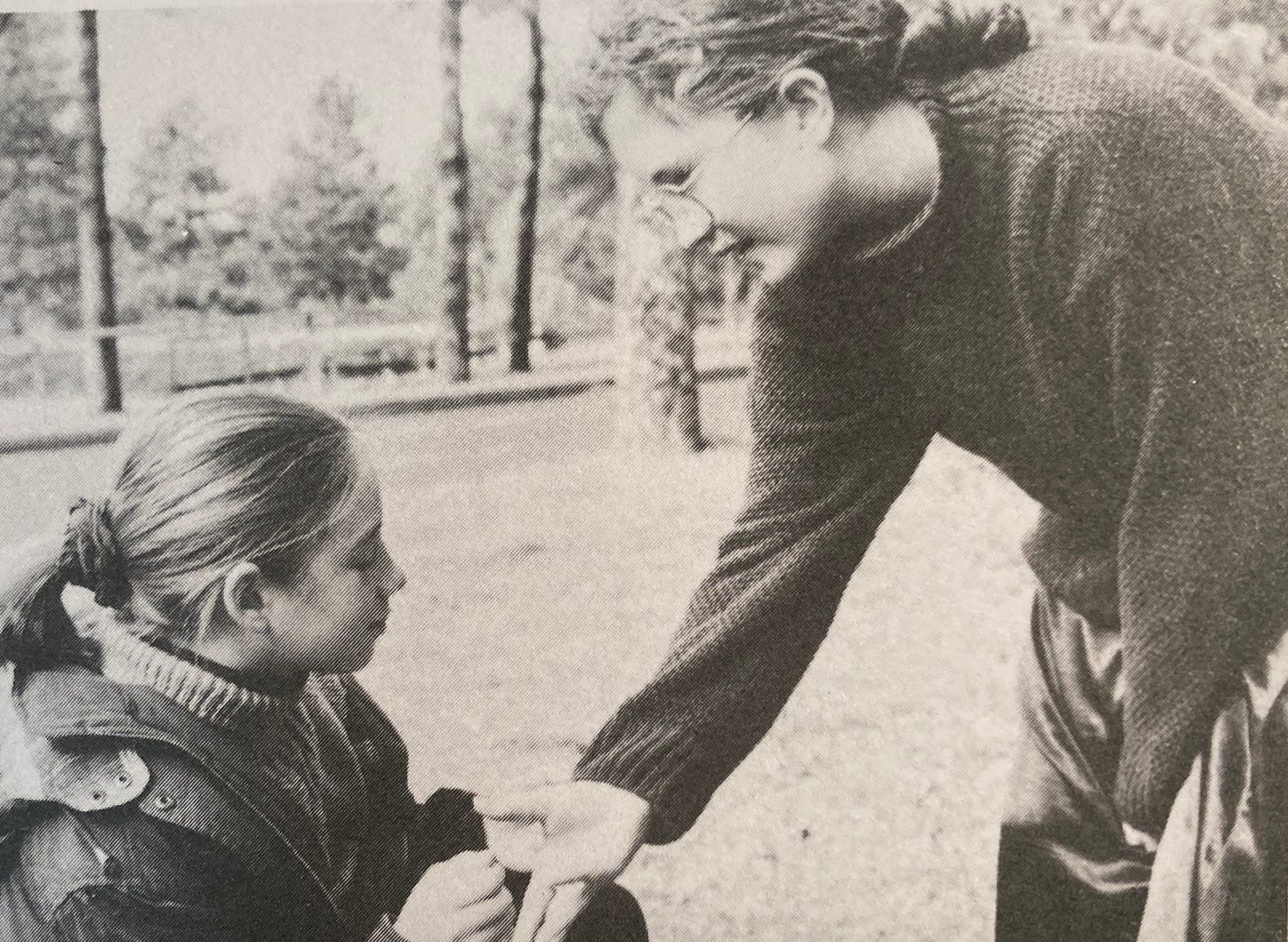
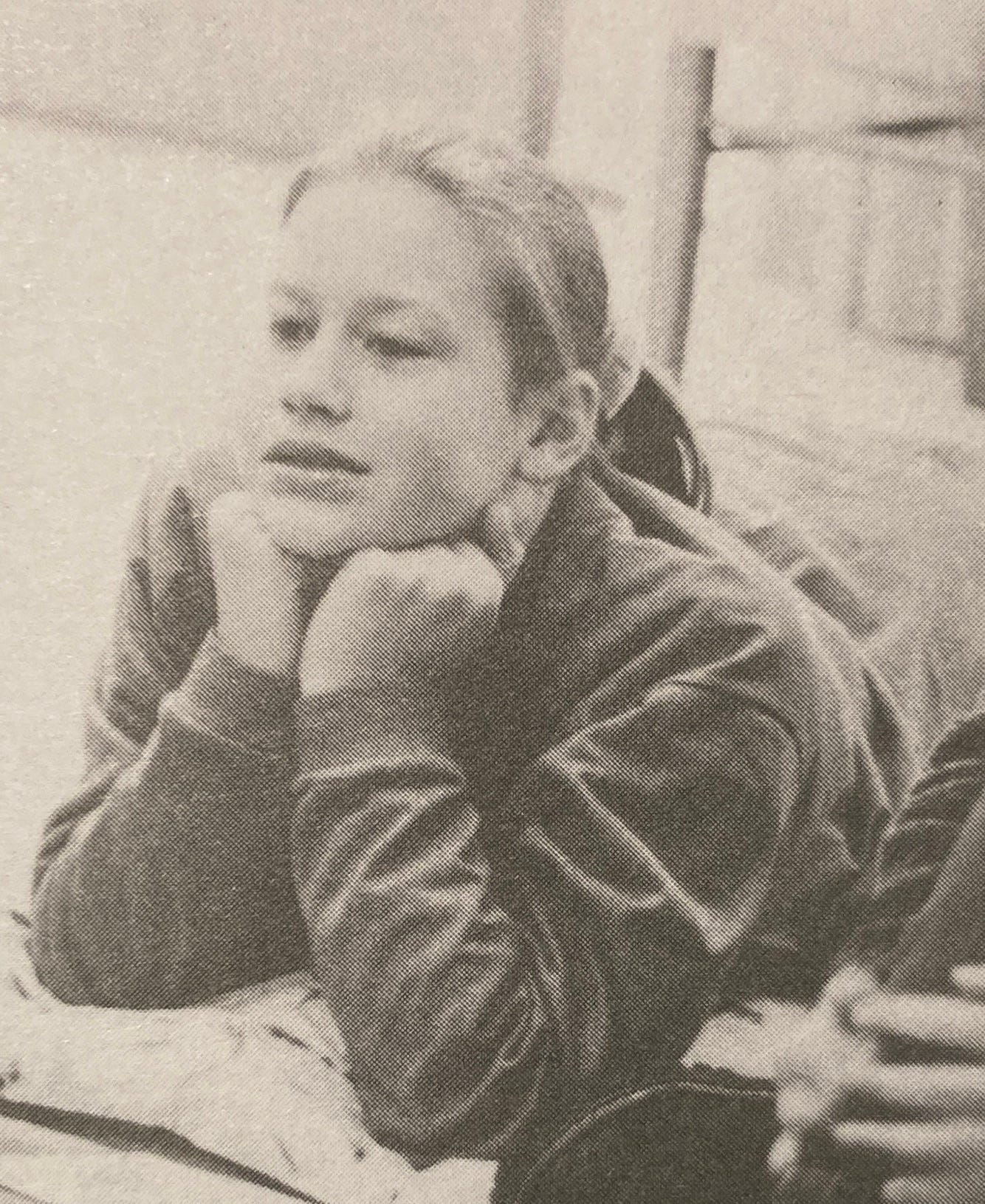
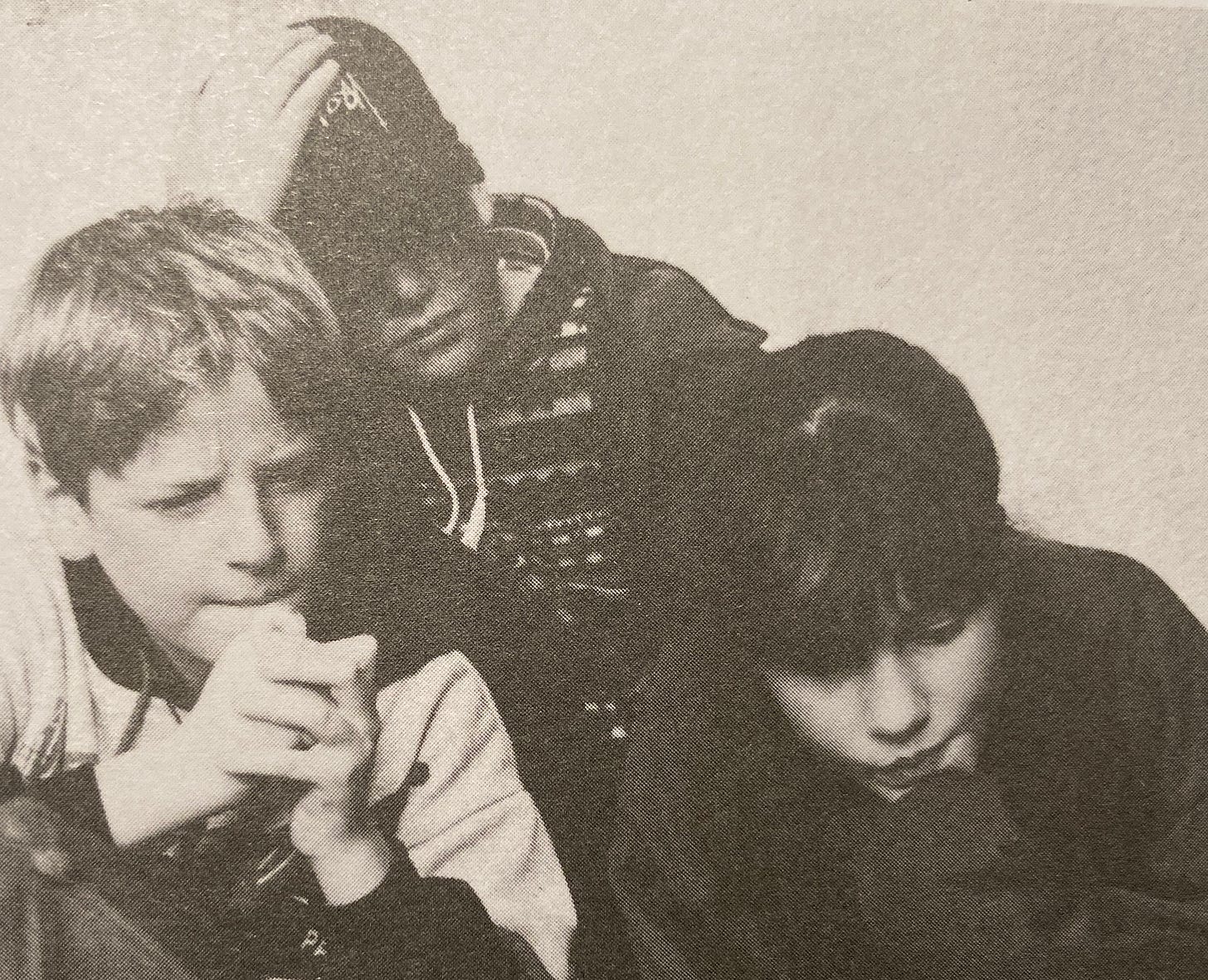
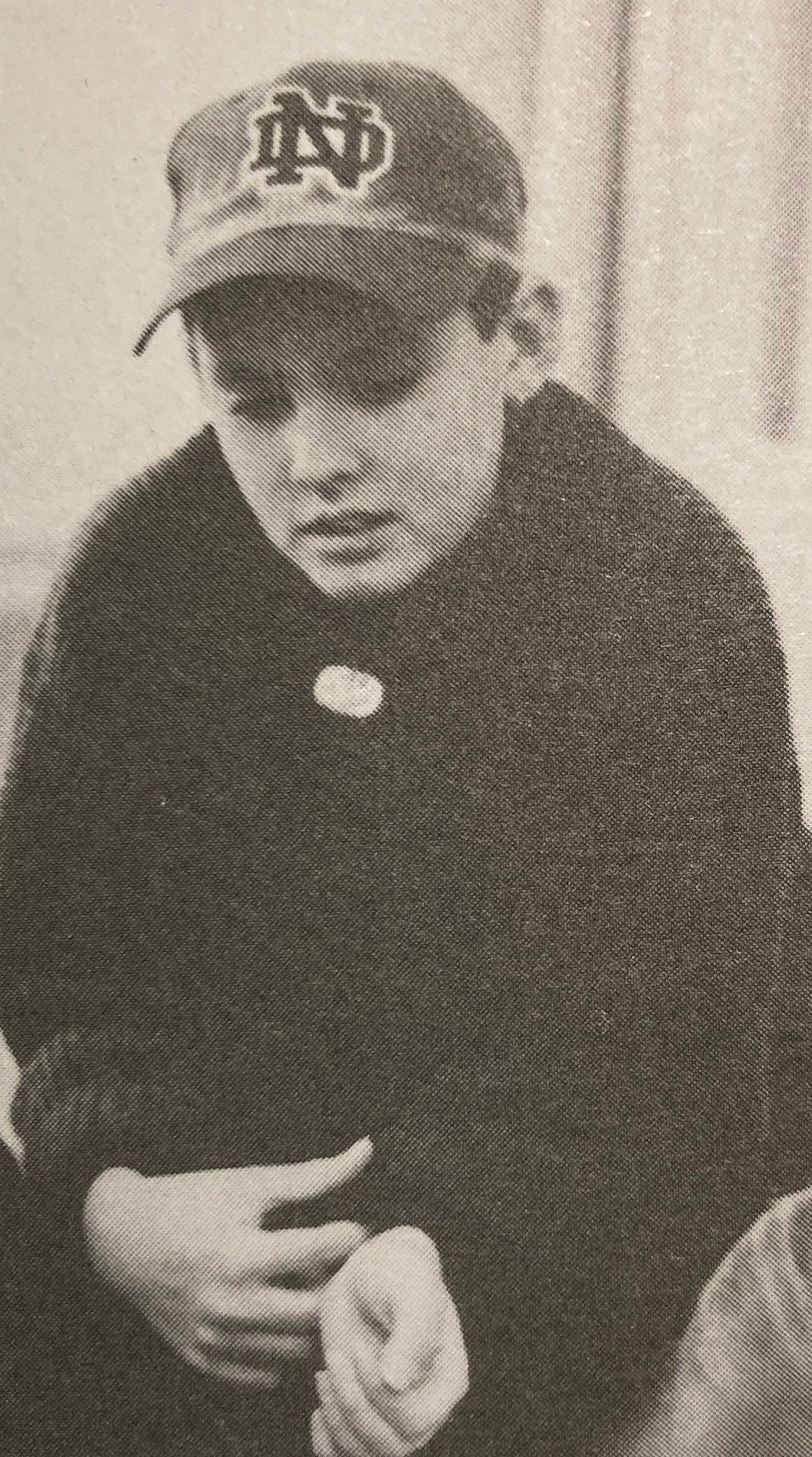
Hi Steve! Thank you SO MUCH for the serendipitous link to Emily's wonderful review of Mendelsohn's book. Like the door-bed, it has opened my awareness to previously unrecognized connections between that decades-long attraction to re-reading The Odyssey and other rooms in my brain-soul that I've been drawn deeper into lately: rooms having to do with father and family and ancient languages and dreams and temporary homes and making peace with the dead. This morning I endured some testing on my eyes and have spent the past couple of hours in a bookstore-cafe waiting for my pupils to return to normal, which is where I read the review, and promptly purchased a copy of Mendelsohn's book, which a staff person was able to find for me! Thank you again, Steve. I suspect you may read more about this, either directly or in a post (I am rather sporadic, still working full-time). I'm honored to be your first "stranger" subscriber. Looking forward to reading much more of your inspiring writing!
Steve! How wonderful to have (by "chance") discovered you and your writing today! I clicked your link to this post because I wanted to read about your experience teaching The Odyssey. I read it 50 years ago for school. I had/have always been a voracious reader but was (and still am to some degree) challenged to remember what I've read. So for this assignment I decided to apply myself like glue to the words and names and adventures in this tale. I wrote lists and charts and synopses for myself. Upon completion, I took with my classmates a 100-question exam -- all multiple choice and fill-in-the-blank and such. No open-ended questions. I received the highest score in the class -- a 98 (I confused two similar names). After returning our test papers to us, our teacher organized us into small groups of 7 or 8 and gave us a set of discussion questions. I was speechless throughout. I had no idea how to respond. Ever since that day, for 50 years, I have imagined reading The Odyssey again, with the hope that now I would be able to glean more from it than I did at 16. I've carried Robert Fagles' translation across the country and back for several decades. And when Emily Wilson's translation was published in 2017 I went to hear her interviewed at a nearby bookstore and now own an autographed copy. But I have not yet read either version. Some years ago I read an article about re-reading books that gave one reason for hesitation as fear of being disappointed. I would add fear that I still won't "get it."
In any case, thank you for all the writing you've shared here, which I've made a tiny dent in reading this sunny morning on the East Coast of the USA.